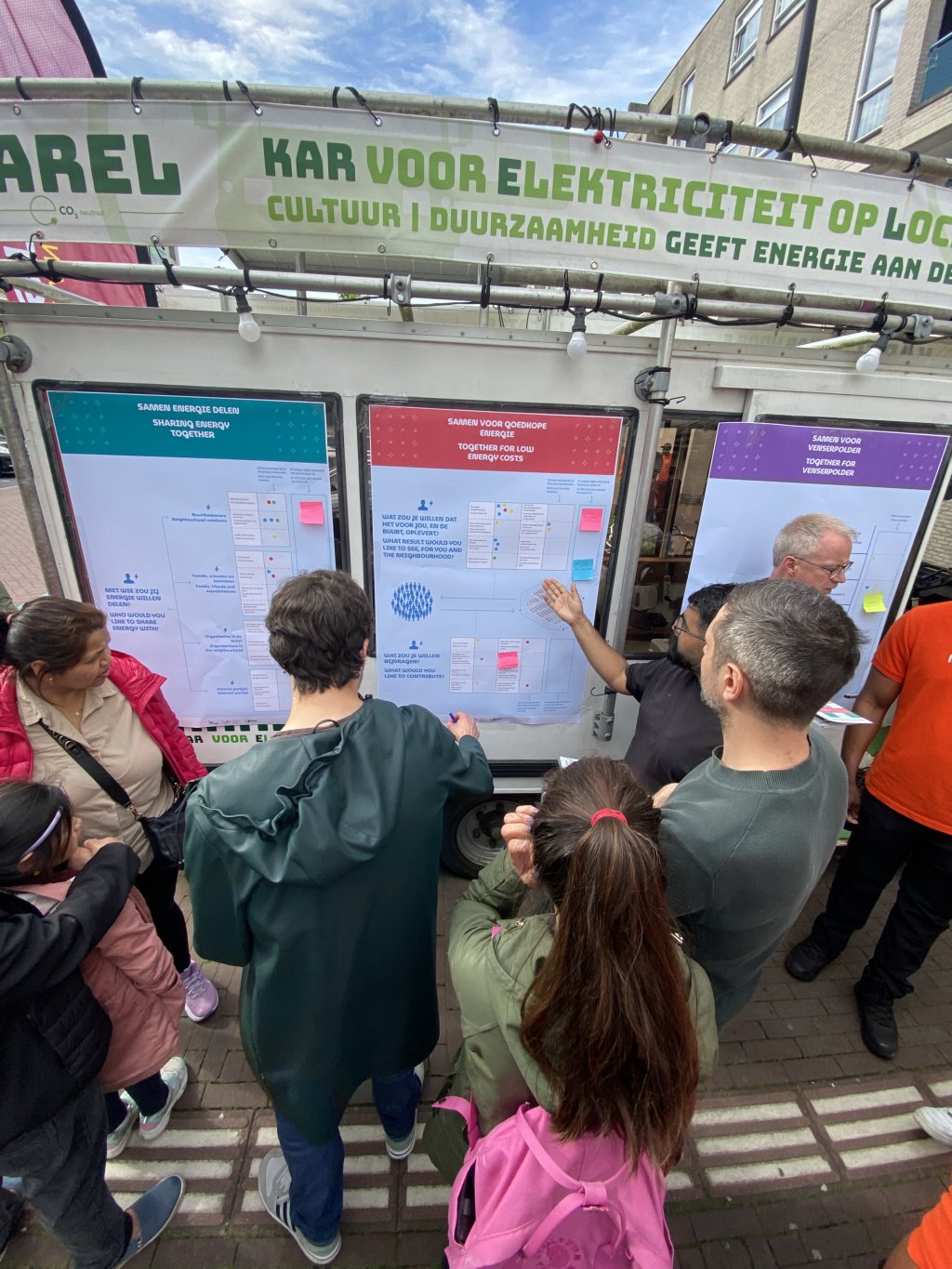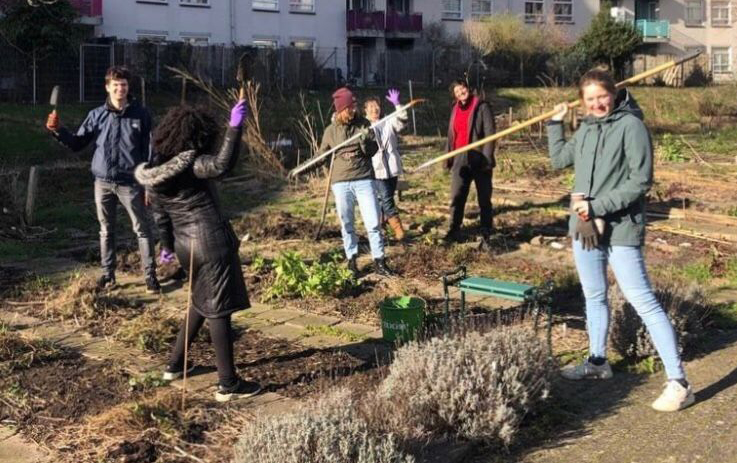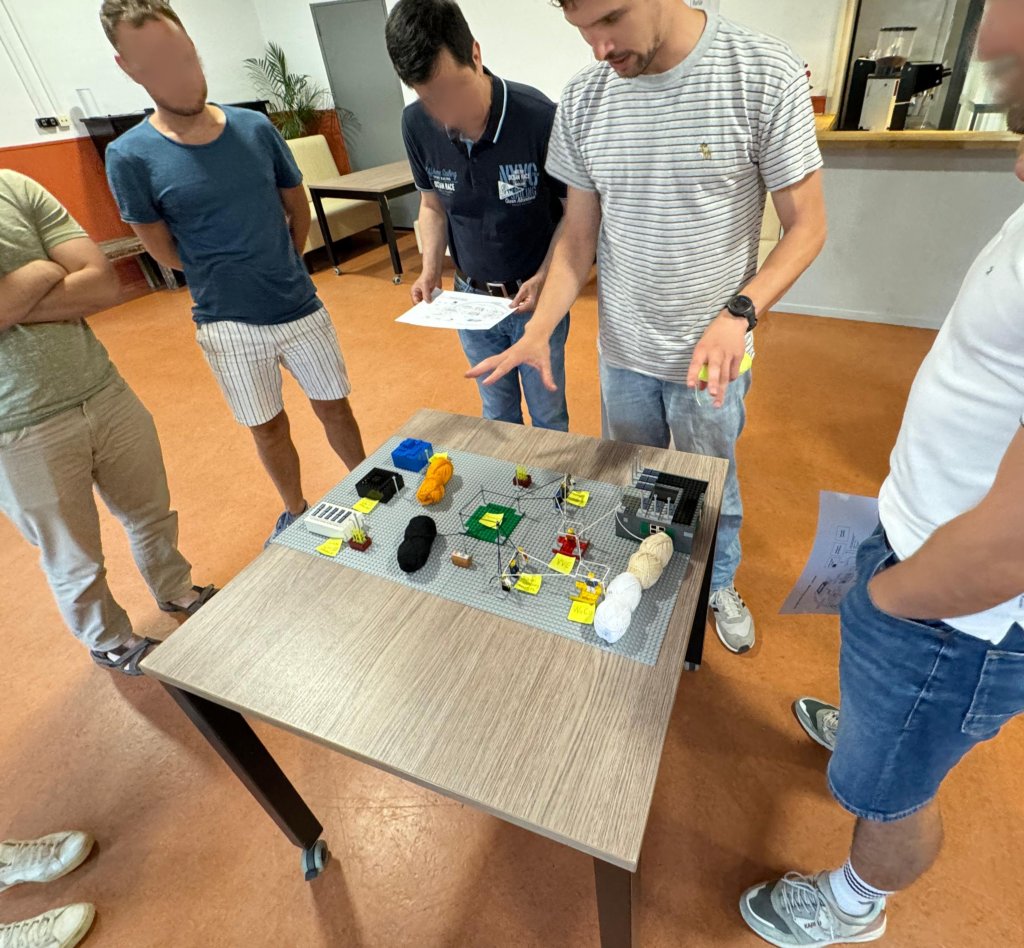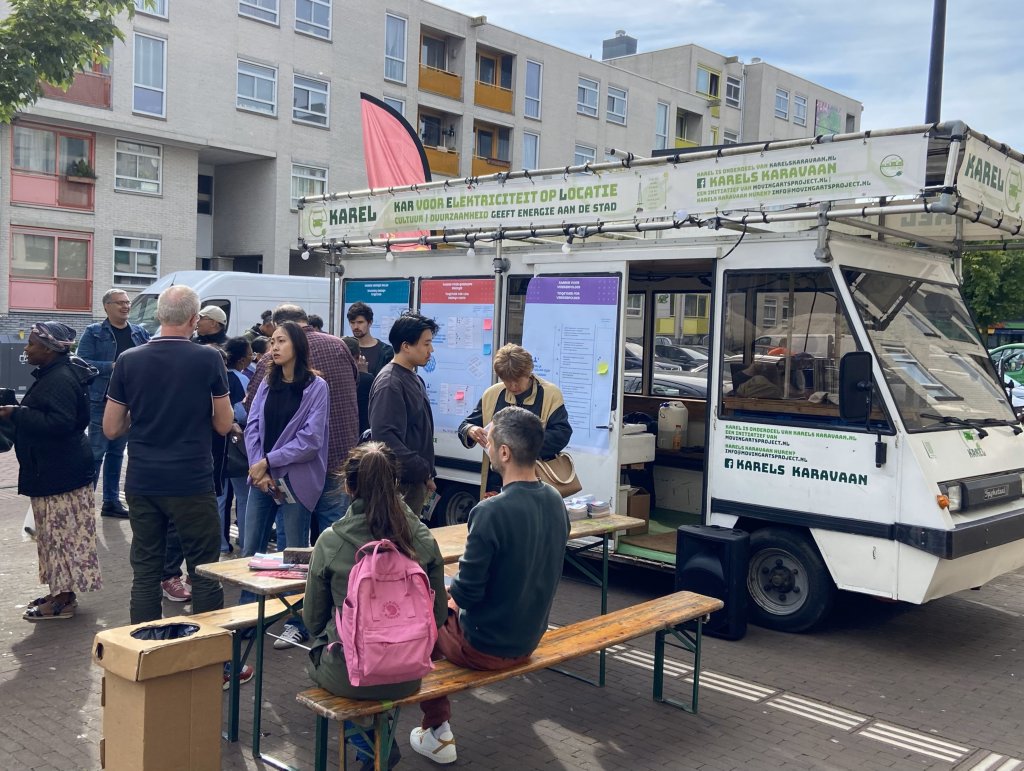Gijs van Leeuwen, Abhigyan Singh
Our project takes place in Amsterdam South-East, in a neighbourhood with rich cultural diversity but also significant socio-economic challenges, including high rates of energy poverty. The challenge is to democratically and inclusively organise the local energy transition as well as unburden people from the technical complexities.
To achieve this, we and local partners explored whether a local energy cooperative could be established. This is an organisation where local residents have collective ownership over solar energy generation. All members can participate in collective decision-making, for example about the distribution of revenues. Key to the success of this project was to get as many people involved as possible.
Would you rather be unburdened, or participate pro-actively in local energy transition?
To support the establishment of this cooperative, we made use of a design anthropology approach. We combined ethnographic fieldwork with co-creation sessions, inviting residents to share their needs and concerns and contribute to the design of the cooperative. In our sessions, we used creative facilitation techniques and materials like Lego to make tangible what the cooperative could look like and how it might operate.
Furthermore, as designer-anthropologists, we mediated between the local initiative and external stakeholders. For example, we explored a potential partnership with the local football stadium, which is connected to the project and has a large energy storage battery in its basement. Because of this role and our collaboration with local partners, relationality formed a core aspect of the approach.
In addition to these concrete activities, we used anthropological and other theories to interpret issues of power relations, socio-economic exchanges, and reciprocity. This in-depth analysis guided our approach in engaging local residents.

Our project provides insight into the challenges and opportunities of conducting design research in an underprivileged area. For example, we highlight the issue of reciprocity between researchers and participants. People in our research area suffered from ‘participation fatigue’, as a plethora of research had already been conducted there, and the residents had not seen many tangible results. Our research aimed to answer the question: how can designers engage in reciprocal and fair relations with their participants?
Furthermore, local energy transition initiatives generally require people with spare time, energy, and resources to invest. We aimed to engage people from diverse socio-economic and cultural backgrounds. The project provides insights into how underprivileged households – which are not the typical target group – can benefit from local energy transition projects.







